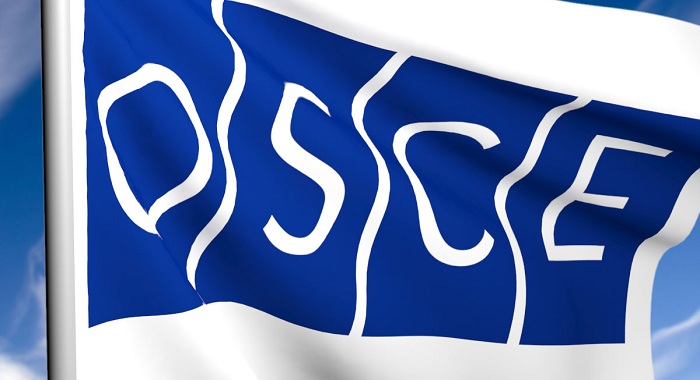They stressed that the referendum’s results will not be recognized by their countries.
The Permanent Mission of Azerbaijan to the OSCE also made a statement at the meeting of the Permanent Council on Feb. 16 regarding an illegal “referendum” reportedly to be held by Armenia in the occupied territories of Azerbaijan.
“This provocative step, as well as Armenia’s attempts to change the name of the Nagorno-Karabakh region, the integral part of Azerbaijan, is yet another clear manifestation that Armenia is not genuinely interested in seeking a political settlement of the armed conflict,” said the statement. “Instead, Armenia pursues the path of escalation, undertakes consistent measures to consolidate the results of its occupation policy and to maintain unacceptable and unsustainable status quo, undermines efforts for the peaceful resolution of the conflict through substantive talks.”
The permanent mission stressed that the illegal “referendum” constitutes a clear violation of the Constitution of Azerbaijan and the norms and principles of international law, and, therefore, has no legal effect whatsoever.
“This so-called “referendum” is being conducted in the seized lands under situation created through the use of force and threat of force against the territorial integrity of Azerbaijan by Armenia and accompanied by the notorious practice of ethnic cleansing and other flagrant violations of the norms and principles of international law,” said the statement.
Azerbaijan’s permanent mission called upon the international community to reject this fabricated illegal “referendum” exercise and to exert political and diplomatic pressure on Armenia with a view to drop its futile attempts to mislead its own people and the wider international community, cease its policy of occupation and annexation, engage constructively in the conflict settlement process and comply with its international obligations.
Speaking on behalf of the OSCE Minsk Group co-chairing countries, France stressed the co-chairing countries are concerned by the problem, noting that Nagorno-Karabakh is not recognized as an independent state by any country in the world and thus the results of the upcoming referendum will not be recognized by the co-chairing countries.
The French representative noted that this referendum cannot have any impact on the legal status of Nagorno-Karabakh or the ongoing negotiations to resolve the conflict.
The French representative also recommended that the sides should refrain from any act that would possibly escalate the situation.
The Nagorno-Karabakh conflict entered its modern phase when the Armenian SRR made territorial claims against the Azerbaijani SSR in 1988.
A fierce war broke out between Azerbaijan and Armenia over the Nagorno-Karabakh region of Azerbaijan. As a result of the war, Armenian armed forces occupied some 20 percent of Azerbaijani territory which includes Nagorno-Karabakh and seven adjacent districts (Lachin, Kalbajar, Aghdam, Fuzuli, Jabrayil, Gubadli and Zangilan), and over a million Azerbaijanis became refugees and internally displaced people.
The military operations finally came to an end when Azerbaijan and Armenia signed a ceasefire agreement in Bishkek in 1994.
Dealing with the settlement of the Nagorno-Karabakh conflict is the OSCE Minsk Group, which was created after the meeting of the CSCE (OSCE after the Budapest summit held in Dec.1994) Ministerial Council in Helsinki on 24 March 1992. The Group’s members include Azerbaijan, Armenia, Russia, the United States, France, Italy, Germany, Turkey, Belarus, Finland and Sweden.
Besides, the OSCE Minsk Group has a co-chairmanship institution, comprised of Russian, the US and French co-chairs, which began operating in 1996.
Resolutions 822, 853, 874 and 884 of the UN Security Council, which were passed in short intervals in 1993, and other resolutions adopted by the UN General Assembly, PACE, OSCE, OIC, and other organizations require Armenia to unconditionally withdraw its troops from Nagorno-Karabakh.
More about:
















































